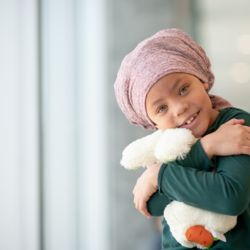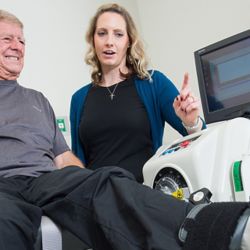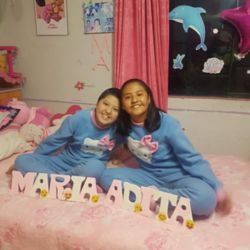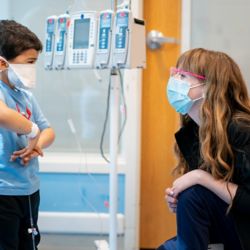My Cancer Survivor Story: Marty on Coming to Terms with Childhood Cancer
Marty Knight considers himself fortunate. He has been married for 37 years and has 2 adult daughters and 3 grandchildren.
Marty is also a childhood cancer survivor. Today, he is open and honest about his experiences with cancer and the guilt he feels about surviving when so many other children did not. This is known as survivor’s guilt.
“I wonder how many patients who were there with me got to be grandparents? I realize every day how blessed I am. It is an amazing thing,” Marty said.
But talking about his time as a childhood cancer patient was not always easy.
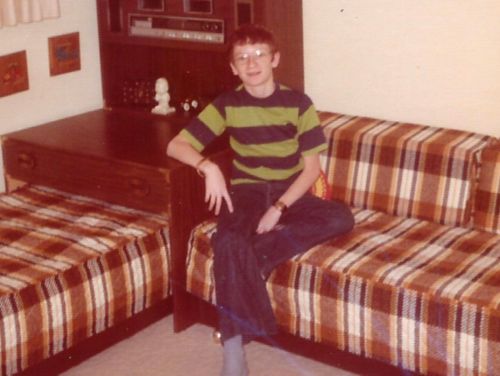
Marty was diagnosed with melanoma at age 12.
Marty’s cancer journey
Marty was diagnosed with amelanotic melanoma in 1974 at age 12. It was a scary and confusing time for him.
“I wanted as few people as possible to know I had cancer,” he said.
His cancer was treated with surgery.
Marty did not need chemotherapy or radiation treatment. So, he has not had some of the side effects other childhood cancer patients have had.
He did not “look as sick” during treatment as others he met. It was easier for him to keep his cancer a secret.
“I never talked about it as a teen or a young adult. I would lie to my classmates when I went for a checkup. I would lie about where I was or what I was doing,” Marty said.
Talking about childhood cancer
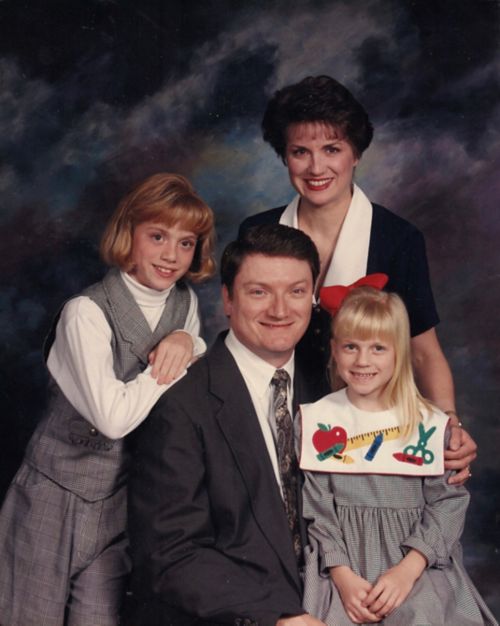
Marty, shown here with his wife and daughters, did not talk about his cancer diagnosis as a teenager or young adult.
When Marty married, he told his wife he was a cancer survivor. The information surprised her.
“I packaged this up and put it away mentally. I was surprised that my wife was concerned about it. When we married, I was only 10 years removed from cancer,” Marty said.
More years passed. Marty still chose not to talk about his childhood cancer diagnosis with people in his life.
But, in time, he did want to know more about his diagnosis. When Marty turned 40, he reached out to St. Jude Children’s Research Hospital, the place where he had been treated, to learn more about his case.
In 2015, Marty was ready to visit St. Jude again. He can still recall walking into the hospital. Some of the smells, he said, were the same.
Support from his family has helped him come to terms with the experience and talk about it more easily.
Advice for younger survivors
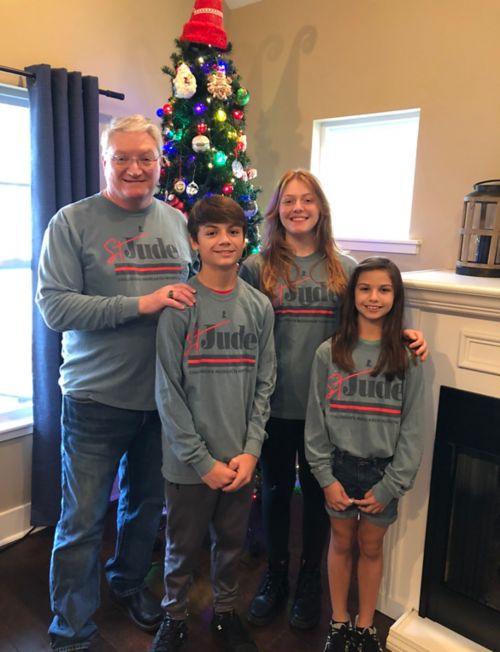
Marty enjoys celebrating holidays with members of his family.
Sharing experiences and knowing as much as you can about your diagnosis can help.
Marty wishes now he had talked more about his experiences with his family.
“I would encourage parents to be honest with young adult children,” Marty said.
It’s also good for childhood cancer survivors to understand their diagnosis, treatments, and future risk factors. Following a survivorship care plan can help.
“I realize now how dangerous not being on top of it could have been for me,” he said. “Be open and honest with the people in your life. You will not regret it.”
Learn more about life after cancer.


